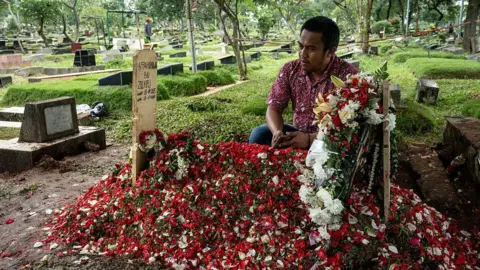On the 80th anniversary of the liberation of Bergen-Belsen, a poignant gathering of survivors and their families recalls the camp's harrowing legacy. The British and Canadian forces' arrival in April 1945 revealed the grim realities, unveiling a scene of profound human suffering amid unburied corpses and emaciated survivors.
The camp witnessed a staggering death toll, with reports estimating between 50,000 and 70,000 fatalities, predominantly among Jewish prisoners. This tragic count included renowned figures like Anne Frank, whose life was cruelly cut short during the Reich’s final chaos. Deteriorating conditions led to rampant disease, malnutrition, and nearby, the mobilization of benevolent soldiers and medics who, unfortunately, could do little to alleviate the horrors.
As part of the remembrance events, over a thousand participants, including 180 British Jewish attendees organized by Ajex, the Jewish Military Association, converged to pay their respects. The somber gathering included dignitaries such as Deputy Prime Minister Angela Rayner, who participated in wreath-laying ceremonies, honoring those who suffered and perished in the camp. A reflective psalm was recited by UK Chief Rabbi Sir Ephraim Mirvis in the emotionally charged atmosphere.
Though the physical structures of Bergen-Belsen have been reduced to ashes—burned to mitigate the spread of disease—memories etched in time remain vivid in the field, with memorial stones offering an eternal reminder of the atrocities witnessed. The evocative inscription, “Hier ruhen 5,000 toten," translates to "here rest 5,000 dead," poignantly encapsulating the legacy of loss and resilience that echoes through generations.
As the world grapples with past horrors, the commemoration at Bergen-Belsen serves as a testimony not only to the triumph of the human spirit in survival but also as a crucial reminder of history's lessons to combat discrimination and foster empathy for all.





















